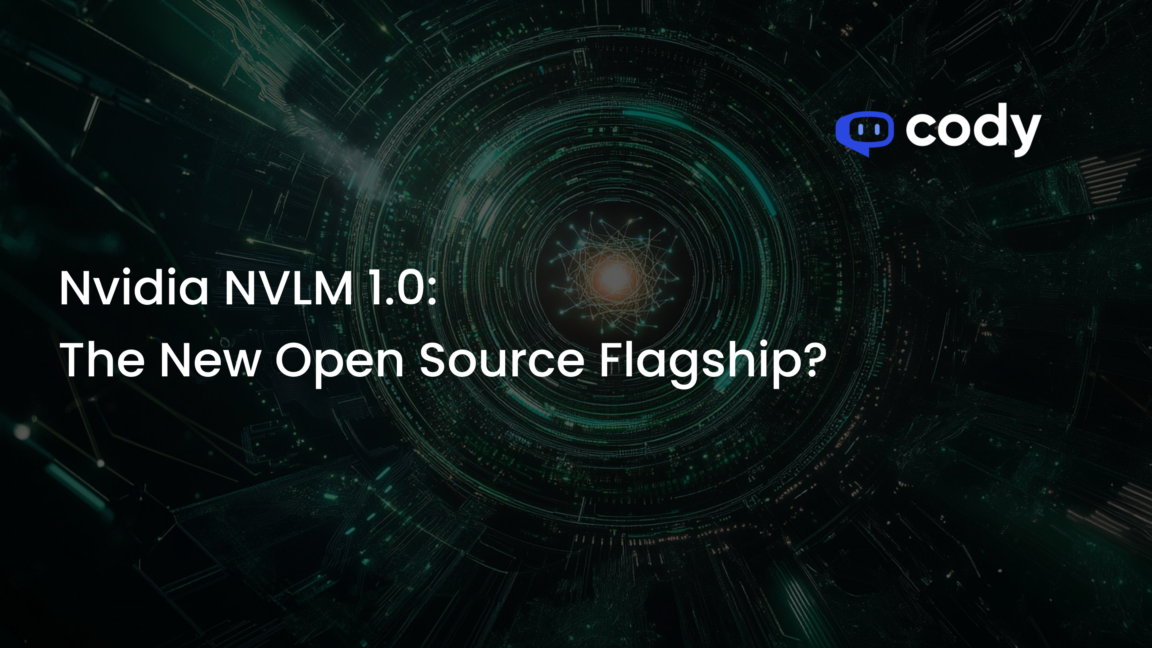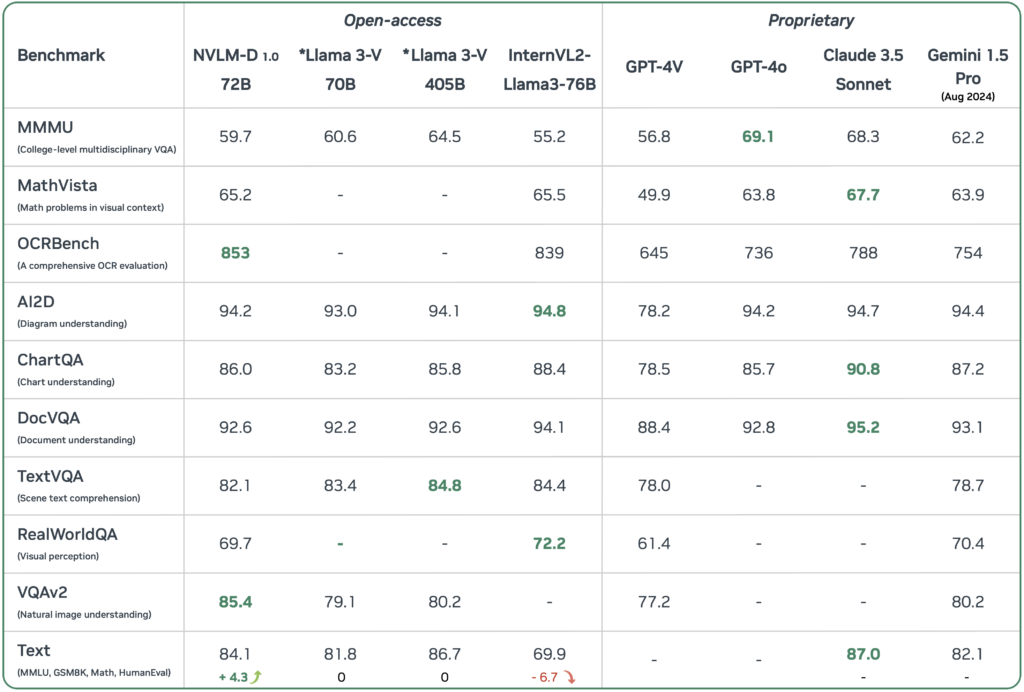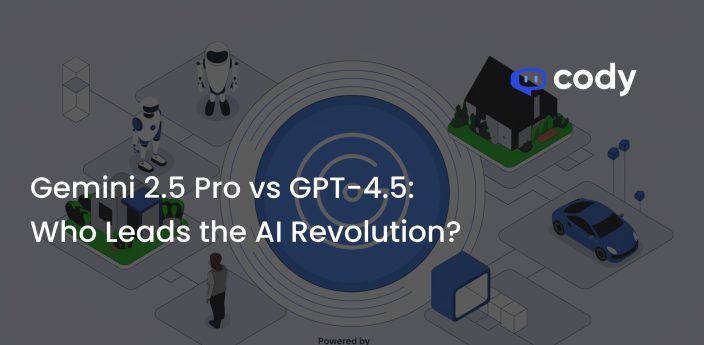
Nvidia NVLM 1.0: The Open-Source Game Changer Taking on GPT-4o
Nvidia has unveiled Nvidia NVLM 1.0, a groundbreaking open-source artificial intelligence model designed to compete with the industry’s leading proprietary systems, including OpenAI’s GPT-4o. This release signifies a pivotal shift in the AI landscape, as Nvidia makes the model weights and training code accessible to the public. Such openness is expected to democratize AI research and development, providing smaller organizations and independent researchers with the tools previously reserved for tech giants. By challenging the norms of keeping advanced AI systems closed, Nvidia aims to foster innovation and collaboration within the AI community
Features and Performance
Nvidia’s NVLM-D-72B, the flagship model of the Nvidia NVLM 1.0 family, is making waves with its impressive 72 billion parameters. This state-of-the-art model excels in vision-language tasks and has shown a notable improvement in text accuracy, outperforming several leading AI models. Benchmark tests reveal that NVLM-D-72B competes well against proprietary giants like GPT-4o from OpenAI, showcasing its potential in the AI landscape.

Source: Nvidia Labs
One of NVLM-D-72B’s defining features is its versatility in interpreting memes, analyzing images, and solving complex problems. Unlike many models that suffer a decline in text performance post-multimodal training, NVLM-D-72B enhances its textual capabilities, demonstrating resilience and adaptability. This capability broadens its application scope, making it a robust tool for researchers and developers worldwide.
Impact on the AI Industry
Nvidia’s release of Nvidia NVLM 1.0, an open-source AI model comparable to industry leaders like OpenAI’s GPT-4o, marks a significant shift in the AI landscape. By making the model weights and training code publicly accessible, Nvidia challenges the traditional business models of keeping advanced AI systems proprietary. This move could accelerate AI research and development by enabling smaller firms and independent researchers to access cutting-edge technology without the hefty costs.
However, this openness also introduces risks and ethical concerns. With more powerful AI tools available to a broader audience, there is an increased potential for misuse, raising questions about responsible AI development. The AI community now faces the challenge of balancing innovation with the need for ethical guidelines and safeguards to prevent unintended consequences. Nvidia’s bold move is likely to influence how other tech giants approach AI development in the future. The true impact of this open-source initiative will unfold as the industry adapts to this new paradigm.
Future Implications
Nvidia’s unveiling of Nvidia NVLM 1.0 as an open-source model is poised to transform the AI industry landscape. By offering a model that competes with proprietary giants like GPT-4o, Nvidia sets a precedent that could pressure companies like OpenAI and Google to reconsider their closed approaches. This development might stimulate increased collaboration and innovation, as smaller entities gain access to cutting-edge technology previously limited to well-funded corporations.



